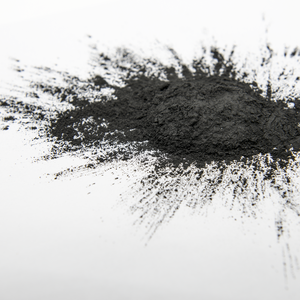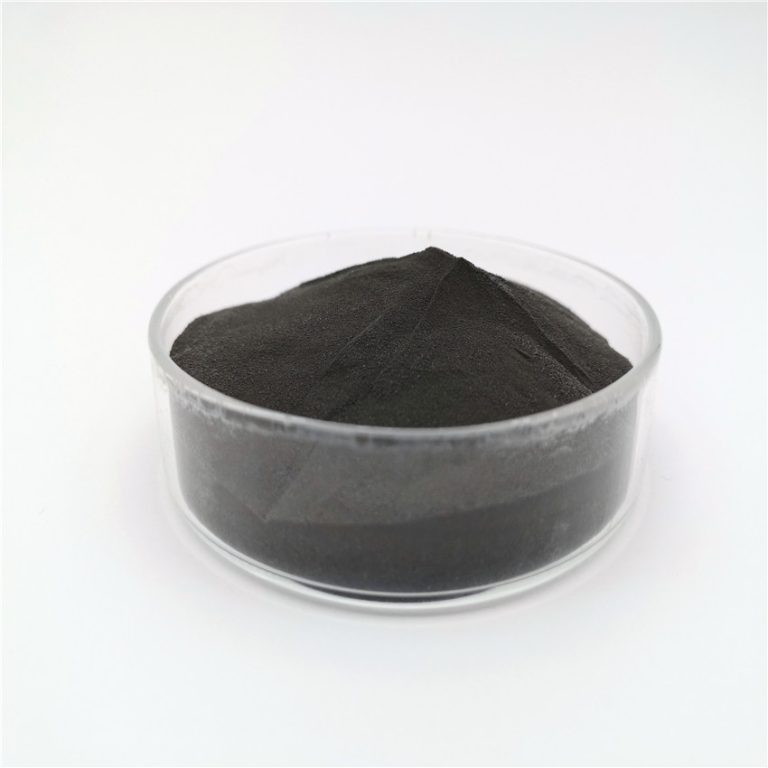Professional and high-quality metal alloys, ceramic products and concrete additives | RBOSCHCO
Carbide powder
Overview of Carbide Powder
Carbide powders are compound materials formed by combining metallic or semi-metallic elements with carbon, usually with high hardness, high melting point and good wear resistance. They have a wide range of industrial applications, such as cutting tools, abrasives, and high-temperature and wear-resistant components.

Characteristics and advantages of Carbide Powder
High hardness: Carbide powders have an extremely high hardness, which makes them very suitable for applications where resistance to abrasion and cutting is required.
High melting point: Most carbides have a high melting point, which allows them to remain stable in high-temperature environments.
Good electrical conductivity: Some carbides, such as silicon carbide (SiC), have good electrical conductivity.
Chemical Stability: Carbides generally have a high resistance to chemical attack, especially in some acidic and alkaline environments.
Thermal stability: Due to their structural properties, carbides are able to withstand extreme temperature changes without significant deformation or decomposition.
Specifications of Carbide Powder
| Specification | Description |
|---|---|
| Product Name/Grade | Specific grade or name of the carbide powder product |
| Chemical Composition | Percentage composition of elements (e.g., WC, TiC, Co binder) |
| Particle Size Distribution (PSD) | Average particle size (D50), size range (e.g., <1 µm to 10 µm) |
| Morphology | Particle shape (spherical, irregular, etc.) and surface characteristics |
| Bulk Density | Mass per unit volume in loose form (g/cm³) |
| Tap Density | Bulk density after vibration or tapping (g/cm³) |
| Specific Surface Area (SSA) | Total surface area per unit mass (m²/g) |
| Oxygen Content | Percentage of oxygen present |
| Carbon Content | Percentage of carbon content |
| Binder Content | Percentage of metallic binder (if applicable) |
| Flowability | Measurement of how easily the powder flows (e.g., Hall flow rate, Carr Index) |
| Apparent Density | Density of the powder in its natural state (g/cm³) |
| Hardness | Vickers hardness or other relevant hardness measurement |
| Melting Point | Temperature at which the material transitions from solid to liquid (°C) |
| Thermal Conductivity | Ability to conduct heat (W/m·K) |
| Electrical Resistivity | Resistance to electrical current (Ω·m) |
| Coefficient of Thermal Expansion (CTE) | Rate at which the material expands upon heating (µm/m·K) |
| Magnetic Properties | Magnetic susceptibility or permeability |
| Color | Visual appearance |
| Safety Data | Relevant safety information (refer to MSDS) |
Applications of Carbide Powder
Carbide powders are used in a variety of applications due to their unique properties:
Manufacture of carbide tools such as drills, milling cutters and other machining equipment;
In the manufacture of wear-resistant parts, such as bearings, nozzles and pump components;
As semiconductor materials or conductive fillers in the electronics industry;
Production of advanced ceramic materials;
As abrasives for grinding and polishing processes.

Company Profile
RBOSCHCO Technology Co., Ltd. is committed to technology development, applications of nanotechnology and new material industries, with professional experiencein the nano-technology research and development and the application of materials.especially for 3d printing powder, 3d printing metal powder, 3d printing powder supplier, 3d printing for titanium powder, 3d printing plastic powder.
If you want to know more about Carbide Powder, please feel free and contact us: tech@nanotrun.com

Package of Carbide Powder
25Kg woven outer bag lined with plastic bag, stored at room temperature away from light, moisture and rain.
Storage of Carbide Powder
Paper plastic composite packaging lined with plastic bags
FAQ about Carbide Powder
What is a carbide?
Carbides are a class of compounds made by combining metallic or semi-metallic elements with carbon atoms, and they are known for their excellent physical and chemical properties.
What can carbide powders be used for?
Carbide powders are used in a wide range of manufacturing applications, including the production of cutting tools, wear parts, abrasives and, under certain conditions, electrical components.
How do I choose the right carbide powder?
Selection takes into account the specific requirements of the application, such as the required hardness, wear resistance, operating temperature range, etc., and accordingly selects the most suitable type of carbide and its particle size.
Are carbide powders harmful to humans?
Direct contact with carbide powders may cause skin irritation or risk of inhalation, so wear appropriate protective equipment and follow safety guidelines when handling.
How long can I store carbide powders?
Carbide powders can be stored for long periods under dry, sealed conditions without affecting their properties; however, care should be taken to avoid humid environments to prevent caking or oxidation.

